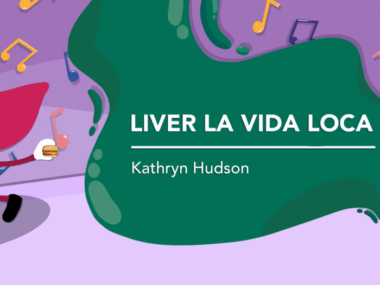Global Fatty Liver Day to raise awareness of ‘concealed epidemic’
Early detection key as MASLD often underrecognized until advanced stages
Written by |

Global Fatty Liver Day, this year falling on June 13, is an annual effort to raise awareness about metabolic dysfunction-associated steatotic liver disease (MASLD), and prompt more people to get screened for this common but underrecognized disorder.
Members of the community are encouraged to get involved and spread the word, with events such as screenings for MASLD, previously known as nonalcoholic fatty liver disease or NAFLD, and educational classes to inform the public.
This is the seventh annual Global Fatty Liver Day, recognized on the second Thursday of June. The initiative was first launched by the Global Liver Institute (GLI) in 2018 as International NASH Day.
According to the GLI, last year’s event was a major success, bringing together 30 international societies and more than 100 partner organizations across dozens of countries to help jumpstart a range of activities including liver health screenings and awareness campaigns.
MASLD is marked by fat buildup in liver, linked to other metabolic disorders
MASLD is marked by the abnormal buildup of fat within the liver in the context of other metabolic disorders, such as diabetes or high levels of fatty molecules in the blood. In severe cases, this can lead to inflammation and scarring that damages the liver, known as metabolic dysfunction-associated steatohepatitis (MASH).
MASH was previously called nonalcoholic steatohepatitis or NASH. Fatty liver disease-related nomenclature was updated last year to improve accuracy and lessen stigma.
Treatment mainly focuses on exercise and diet to promote weight loss, thereby reducing the amount of fat in the liver.
MASLD and MASH remain a “concealed global epidemic,” according to the GLI, with more than 115 million people worldwide estimated to be living with fatty liver disease, and this number is expected to balloon past 350 million by 2030.
Even though MASLD is common, many people who have the disease don’t know it because it doesn’t usually cause noticeable symptoms until advanced stages, at which point the disease is much harder to treat and manage. As such, screening and early identification have emerged as key areas of MASLD care.
“With conditions like obesity and diabetes increasing the risk for fatty liver disease, early screening is crucial to prevent serious complications like cirrhosis and liver cancer. By prioritizing early detection, we can ensure a healthier tomorrow,” the organization stated on its website.
The GLI urges people in the fatty liver disease community to host or participate in screenings and share on their social media a photo pointing to a watch or clock with the hashtag #ActNowScreenToday to highlight the importance of early detection.
Surfing the MASH Tsunami podcast hosted special episode with MASLD experts
In anticipation of this year’s Global Fatty Liver Day, the GLI’s Surfing the MASH Tsunami podcast recently held a special episode in which experts discussed the current state of MASLD worldwide and the importance of early detection.
On the day itself, June 13, the community is encouraged to participate in educational sessions that will cover several themes, such as the state of fatty liver disease and how to increase awareness to improve patient outcomes.
There will also be a panel session where healthcare professionals, researchers, and faith leaders will discuss risk factors, prevention strategies, and treatment options to empower people in marginalized and faith communities.
Everyone is also encouraged to host or attend educational sessions or fitness events.
To help community members spread accurate information, the GLI has put out a series of educational resources, available in English and more than a dozen other languages.
The British Liver Trust is also working to spread awareness this year, including highlighting stories from people affected by the liver disease and encouraging people to complete a quiz to gauge their knowledge about fatty liver disease.



